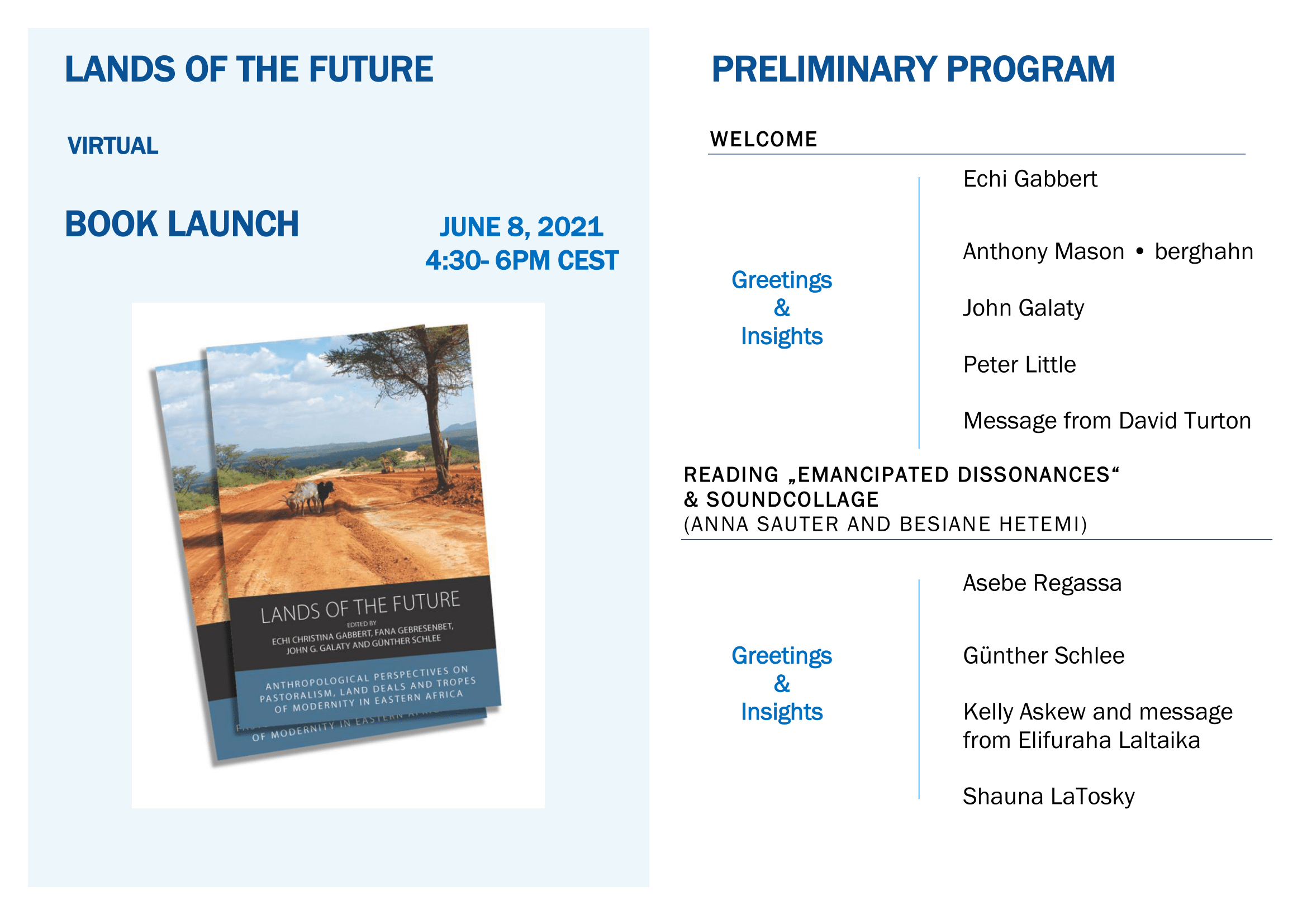

About the book
Rangeland, forests and riverine landscapes of pastoral communities in Eastern Africa are increasingly under threat. Abetted by states who think that outsiders can better use the lands than the people who have lived there for centuries, outside commercial interests have displaced indigenous dwellers from pastoral territories. This volume presents case studies from Eastern Africa, based on long-term field research, that vividly illustrate the struggles and strategies of those who face dispossession and also discredit ideological false modernist tropes like ‘backwardness’ and ‘primitiveness’.
This volume does not provide comfortable truths. On the contrary, while genuinely acknowledging the urgency of the obligation of governments to provide good living conditions for their citizens, it exposes, in anthropological detail, the painful, harmful and deeply dissonant developments that first brought people together in the Lands of the Future Initiative. It will not curry favour with self-proclaimed modernizers. It takes a stand against power inequalities, harmful development, short-sighted growth paradigms and forms of repression on a global scale.
Read the introduction „Futuremaking with Pastoralists“ here: https://www.berghahnbooks.com/downloads/intros/GabbertLands_intro.pdf
Reviews
“ Explains clearly how changes in pastoral and agro-pastoral land use/lease in East Africa lead to environmental degradation and depletion of resources… a very important book.” • Taddesse Berisso, Addis Ababa University
„This book is a rare hybrid – timely as a sensitizing intervention, cutting in its analysis, generative in its suggestions, positioned in its judgment, while taking care to not burn bridges in its deliberate and delicate effort to make grounded insights accessible not only to other academics, but also to potential stakeholders involved in the transformation of land use in East Africa and beyond.“ Felix Girke, University of Konstanz
The editors
Echi Christina Gabbert is an anthropologist at the Institute for Social and Cultural Anthropology, Göttingen University, Germany. She coordinates the Lands of the Future Initiative, that focuses on pastoralism, global investment and local responses in East Africa in the 21rst century.
Fana Gebresenbet is Assistant Professor at the Institute for Peace and Security Studies (IPSS) at Addis Ababa University, Ethiopia. He has done extensive fieldwork on land investment in pastoral regions of Ethiopia.
John G. Galaty is Professor of Anthropology at McGill University, Canada. Focused on eastern Africa, his areas of specialisms are pastoralism and social change and rangeland development.
Günther Schlee is Professor of Social Anthropology at Arba Minch University, Ethiopia, and Director emeritus at the Max Planck Institute for Social Anthropology in Halle, Germany. His main publications include Identities on the Move: Clanship and Pastoralism in Northern Kenya (Manchester University Press, 1989) and How Enemies Are Made: Towards a Theory of Ethnic and Religious Conflict(Berghahn Books, 2008).
Further Links
Link to the bookpage at Berghahn:
https://www.berghahnbooks.com/title/GabbertLands
Zoom Room 4
Echi Christina Gabbert, Günther Schlee
